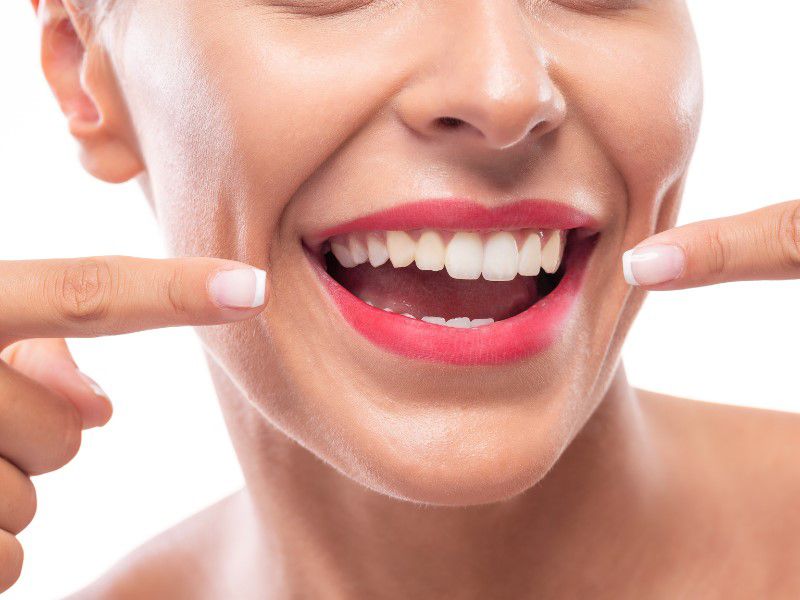
Teeth whitening has become a popular way to improve the appearance of your teeth, but is it good for your teeth? The goal of teeth whitening is to make your teeth whiter and brighter, but there are potential risks and benefits associated with it. In this blog post, we will discuss the pros and cons of teeth whitening, so you can decide if it is the right choice for you.
What is Teeth Whitening?
Teeth whitening is the process of lightening the color of your teeth. It can be done by using a chemical bleaching agent, like hydrogen peroxide, or through mechanical means, like brushing and flossing with an abrasive toothpaste. Whitening treatments can be done at home or in a dentist’s office and can help make stained teeth look brighter and whiter. But is it good for your teeth?
The answer to this question depends on how you go about whitening your teeth. If you use at-home products like whitening strips, gels, and trays, it can be safe for your teeth as long as you follow the instructions closely. However, if you use over-the-counter products too often or for too long, it can cause damage to your enamel. Professional whitening treatments from a dentist are generally considered safe and effective, but they are also more expensive than at-home treatments.
Is Teeth Whitening Bad for Your Teeth?
Overall, teeth whitening is safe for healthy teeth and gums. Professional whitening done in a dental office or by a dentist can help remove deep-set stains and keep your teeth looking their best. However, if you are considering DIY teeth whitening, there are some risks.
Using products not approved by the American Dental Association (ADA) may increase the risk of tooth sensitivity and gum irritation. If you have any existing dental issues like gum disease, cavities, or cracked teeth, the peroxide used in many whitening products can cause further damage. It’s important to consult with your dentist first to determine if professional whitening is right for you and to find out if there are any risks associated with the procedure.
Ultimately, it is important to keep in mind that although teeth whitening can be effective for removing surface stains, it does not repair or prevent any damage to your teeth. If you have any underlying dental problems, it is best to address them before considering a whitening treatment. While teeth whitening can be good for your teeth, it is always important to consult with your dentist before trying any type of at-home or professional treatment.
How to Safely Whiten Your Teeth
To safely whiten your teeth, start by consulting with your dentist. He or she can assess the condition of your teeth and advise you on the best way to whiten them safely. In some cases, your dentist may recommend a professional in-office whitening treatment. This type of procedure uses special gels or lasers to penetrate the surface of your teeth and remove deep-seated stains.
At-home teeth whitening kits are also available, but they may not be as strong as professional treatments. These kits typically contain bleaching agents like carbamide peroxide or hydrogen peroxide. While these products are generally safe for your teeth, it’s important to follow all directions carefully to avoid damaging your enamel. Additionally, you should be sure to only use whitening products that have been approved by the American Dental Association (ADA).
You can also whiten your teeth naturally by brushing with baking soda and hydrogen peroxide. Baking soda acts as an abrasive agent that can help to remove surface stains, while hydrogen peroxide helps to break down plaque and bacteria. Before using this method, be sure to consult with your dentist first to ensure it won’t damage your enamel.
Finally, there are several foods and drinks that can help to naturally brighten your smile. Foods such as apples, carrots, celery, and strawberries are rich in vitamins and minerals that can help to keep your teeth healthy and white. Additionally, drinking plenty of water and avoiding dark-colored foods and beverages can help to keep your teeth looking their best.
Teeth Whitening: The Bottom Line
When it comes to teeth whitening, it’s important to remember that everyone’s teeth are different and the amount of whitening achieved depends on the individual. If you decide to whiten your teeth, it is important to speak with your dentist about which options are best for you. Teeth whitening can be a great way to achieve a brighter and whiter smile, but you should always take the necessary precautions to ensure that it is done safely and effectively. When done correctly, teeth whitening can improve the look of your smile without putting your oral health at risk.
Be sure to consult with your dentist before beginning any whitening regimen, and always follow directions carefully to ensure the safety of your teeth.
